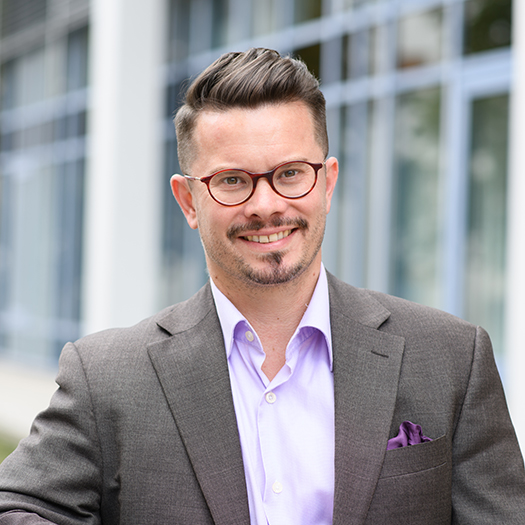#ZEWPodcast: What Does It Take to Keep Employees Healthy at Work?
#ZEWPodcastZEW Economist Professor Nicolas Ziebarth on Statutory Sick Pay
In the latest episode of the #ZEWPodcast, Professor Nicolas Ziebarth explains the economic benefits of granting sick leave and how a social security system must be designed so that people can work as long as possible while remaining happy and healthy. In the interview with podcast host Carola Hesch, the economist also talks about harmful work ethics and how policymakers can reduce the number of people skipping work.
Everyone can relate to this: You have a cold or your back hurts, but there is just so much to do at work. So you ask yourself, maybe I should go to work anyway? It is often overlooked that those who come to work sick risk infecting their co-workers. “This is how infectious diseases spread. People infecting their colleagues at work is what economists call a negative externality, and we want to reduce it wherever possible,” says Professor Nicolas Ziebarth, newly appointed head of the ZEW Research Unit “Labour Market and Social Insurance” in July, in the #ZEWPodcast.
In Germany, there is no reason to come to work sick, at least not from a financial point of view. “Statutory sick pay has been anchored in German law since the early 19th century. And it is one of the most important principles of our social security system,” says Ziebarth in the current podcast episode. In international comparison, sick pay is rarely the norm. The economist explains that in Sweden, the first sick day is not paid at all and employers pay 80 per cent of income thereafter. For a long time, there had been a strong opposition against the introduction of any form of paid sick leave in the US. “Some feared over-regulation of the labour market, falling wages and job losses,” says Ziebarth. However, research shows predominantly positive effects that have no significant impact on the labour market, says Ziebarth, who lived in the USA for eleven years.
New solutions for a social security system under pressure
Paid sick leave is not the only issue. Demographic change and the shortage of skilled workers are challenges that call for innovative solutions. New diseases, including long COVID and the increasing number of people suffering from mental illness, put additional pressure on the system. In the current situation, how can the government keep people healthy and happy and in the labour force for as long as possible? One possible approach is more and better data, as well as new programmes. “For example, employees could answer certain filter questions every morning on a voluntary basis. That way you can see immediately if someone is in a bad mental state, tired or feeling unwell. More pilot projects of this kind would be useful.”

